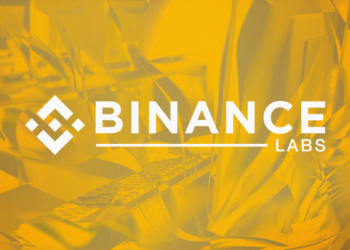In the ever-evolving landscape of cryptocurrency, two disparate regions, Madeira and Singapore, offer compelling insights into their approaches to blockchain technology. While both share an interest in fostering blockchain ecosystems, their strategies and regulatory frameworks differ significantly, reflecting the nuanced global perspectives on embracing this transformative technology.
Madeira’s Crypto Odyssey: A Pioneering Tech Hub in the Atlantic
Portugal’s Madeira archipelago, known for its stunning natural beauty, is steering towards an economic transformation through the lens of emerging technologies, particularly blockchain. The recently concluded Madeira Blockchain 2023 conference unveiled the archipelago’s ambitious agenda to position itself as an emerging technology hub in the Atlantic. Madeira’s unique approach involves leveraging tax incentives to attract emerging technology companies, constituting nearly 30% of businesses in the region’s free trade zone.
Key to Madeira’s crypto strategy is Yacooba Labs, a software development company utilizing blockchain for innovative ticketing solutions. The archipelago is actively diversifying its economy, emphasizing information technology education and experimenting with initiatives like a blockchain-based payment network for tourists. This strategic move positions Madeira not only as a picturesque tourist destination but as a dynamic and forward-thinking player in the world of blockchain technology.
Singapore’s Calculated Approach: Navigating the Crypto Regulatory Maze
In the heart of Southeast Asia, Singapore, a global financial hub, presents a more measured and cautious stance on crypto regulations. The Monetary Authority of Singapore (MAS) recently released detailed responses to feedback on proposed regulations for crypto service providers. Singapore’s approach places a significant emphasis on consumer protection, with a focus on discouraging cryptocurrency speculation, particularly among retail customers.
MAS’s stringent measures include restrictions on financing, margin transactions, and incentives for retail customers engaging in crypto activities. The central bank’s proactive stance extends to prohibiting the acceptance of locally issued credit card payments by crypto entities and necessitating an assessment of customers’ risk awareness before granting access to crypto services. This regulatory framework, set to take effect gradually from mid-2024, aims to balance the burgeoning crypto landscape’s innovation potential with the imperative to protect retail customers from inherent risks.
Contrasting Views on Crypto Regulation: A Global Dialogue Unveiled
The juxtaposition of Madeira’s entrepreneurial fervor and Singapore’s cautious regulatory framework reveals the diverse global perspectives on cryptocurrency. Madeira’s proclivity towards embracing technological innovation aligns with its aspiration for economic diversification, utilizing tax incentives and educational initiatives. In contrast, Singapore’s regulatory prudence signifies a deliberate approach, aiming to strike a balance between fostering innovation and shielding retail customers from the inherent risks associated with cryptocurrency trading.
As both regions unveil their unique crypto strategies, the global dialogue surrounding blockchain technology’s future continues to evolve. The dichotomy between Madeira’s tech-savvy ambition and Singapore’s calculated caution underscores the complexities inherent in navigating the crypto landscape. It highlights the ongoing discourse about the optimal path forward, demonstrating the diverse strategies adopted by regions seeking to harness the transformative potential of blockchain technology.





















































































generic clomiphene walmart can i purchase generic clomiphene without insurance get generic clomiphene without insurance how to buy generic clomiphene cheap clomiphene for sale clomid for sale in mexico buying clomiphene
I really like your writing style, excellent info , regards for posting : D.
This website absolutely has all of the low-down and facts I needed about this case and didn’t positive who to ask.
The thoroughness in this section is noteworthy.
azithromycin over the counter – buy generic ciprofloxacin buy metronidazole
rybelsus 14 mg tablet – buy semaglutide no prescription buy generic cyproheptadine 4 mg
motilium 10mg tablet – domperidone over the counter flexeril sale
order inderal pills – buy inderal pills buy methotrexate 10mg online
cheap amoxicillin – order combivent 100mcg online cheap purchase combivent sale
buy azithromycin 250mg pills – tindamax 300mg without prescription cost nebivolol
Adorei este site. Pra saber mais detalhes acesse nosso site e descubra mais. Todas as informações contidas são conteúdos relevantes e exclusivos. Tudo que você precisa saber está está lá.
Este site é realmente fantástico. Sempre que acesso eu encontro coisas diferentes Você também vai querer acessar o nosso site e saber mais detalhes! informaçõesexclusivas. Venha descobrir mais agora! 🙂
order augmentin 375mg sale – https://atbioinfo.com/ ampicillin ca
amei este site. Pra saber mais detalhes acesse nosso site e descubra mais. Todas as informações contidas são conteúdos relevantes e únicos. Tudo que você precisa saber está está lá.
esomeprazole tablet – anexamate purchase esomeprazole pill
coumadin 2mg brand – https://coumamide.com/ buy hyzaar for sale
mobic 7.5mg usa – moboxsin.com meloxicam 7.5mg sale
The next time I read a blog, I hope that it doesnt disappoint me as much as this one. I mean, I know it was my choice to read, but I actually thought youd have something interesting to say. All I hear is a bunch of whining about something that you could fix if you werent too busy looking for attention.
buy prednisone pills for sale – asthma buy deltasone 20mg generic
over the counter ed pills – fast ed to take site best ed pill for diabetics
buy amoxil generic – buy amoxil online cheap how to get amoxicillin without a prescription
purchase forcan pill – https://gpdifluca.com/ forcan where to buy
cenforce 100mg sale – https://cenforcers.com/ cenforce 100mg tablet
what happens when you mix cialis with grapefruit? – https://ciltadgn.com/ where to buy cialis online for cheap
oral ranitidine – https://aranitidine.com/# buy ranitidine 300mg sale
cialis manufacturer coupon 2018 – where can i buy cialis cialis best price
viagra 50 milligrams – https://strongvpls.com/ viagra 100 mg
This is the kind of content I get high on reading. es seguro fildena 100 espaГ±ol
Greetings! Very productive advice within this article! It’s the little changes which will turn the largest changes. Thanks a quantity quest of sharing! https://ursxdol.com/prednisone-5mg-tablets/
This website exceedingly has all of the information and facts I needed there this subject and didn’t positive who to ask. https://prohnrg.com/
Magnificent web site. Lots of helpful information here. I’m sending it to a few buddies ans additionally sharing in delicious. And obviously, thanks on your sweat!
More posts like this would create the online space more useful. meilleur viagra sans ordonnance 24h
The vividness in this tune is exceptional. https://ondactone.com/spironolactone/
This is the compassionate of writing I positively appreciate.
metoclopramide us
Thanks towards putting this up. It’s okay done. http://anja.pf-control.de/Musik-Wellness/member.php?action=profile&uid=4701
Hello very nice website!! Man .. Beautiful .. Wonderful .. I’ll bookmark your blog and take the feeds additionallyKI am happy to find so many helpful info here within the submit, we want work out extra strategies in this regard, thank you for sharing. . . . . .
dapagliflozin online – https://janozin.com/# order forxiga 10 mg for sale
Rattling nice design and style and excellent subject matter, hardly anything else we need : D.
buy orlistat cheap – https://asacostat.com/ orlistat 120mg us
A person necessarily lend a hand to make significantly articles I’d state. That is the very first time I frequented your website page and so far? I amazed with the research you made to create this particular publish amazing. Wonderful task!
Greetings! Jolly useful advice within this article! It’s the scarcely changes which choice obtain the largest changes. Thanks a lot quest of sharing! http://furiouslyeclectic.com/forum/member.php?action=profile&uid=24879